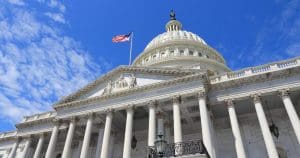The economic crisis caused by the coronavirus pandemic poses a triple challenge for tax policy in the United States. Lawmakers are tasked with crafting a policy response that will accelerate the economic recovery, reduce the mounting deficit, and protect the most vulnerable.
To assist lawmakers in navigating the challenge, and to help the American public understand the tax changes being proposed, the Tax Foundation’s Center for Federal Tax Policy modeled how 70 potential changes to the tax code would affect the U.S. economy, distribution of the tax burden, and federal revenue.
In tax policy there is an ever-present trade-off among how much revenue a tax will raise, who bears the burden of a tax, and what impact a tax will have on economic growth. Armed with the information in our new book, Options for Reforming America’s Tax Code 2.0, policymakers can debate the relative merits and trade-offs of each option to improve the tax code in a post-pandemic world.

Non-Profit Files Lawsuit over Withholding Requirements in Ohio
As work increasingly takes place in home offices, states will have to grapple with the revenue implications, and may find it necessary to adopt policies to better compete with outlying areas. Taxing people in places in which they no longer work, however, will not be the solution.
3 min read
Improved Cost Recovery Is A Wide-Ranging Policy Solution
Rather than limit improvements to certain sectors, lawmakers could pursue a broader policy of full expensing for all capital investment and neutral cost recovery for structures and clear the tax policy hurdles that currently stand in the way of private investment.
3 min read
Peruvian “Solidarity Tax” Unlikely to Offset Deficit Spending
While it is important that Peru find ways to offset its deficit spending, a temporary wealth tax may introduce more problems than it solves.
5 min read
FAQ on Neutral Cost Recovery and Expensing
Cost recovery is the way the tax code permits firms to recover (or deduct) the cost of making investments. Cost recovery plays an important role in defining a business’ taxable income and can impact investment decisions.

Phase 4 Is not the Time to Experiment with Temporary Credits
As lawmakers consider returning to the tax code as a tool to revive a struggling economy with high unemployment and an unpredictable virus, they should avoid temporary changes that can be distortive in the short term and inefficient in the long term.
4 min read
National Taxpayer Advocate’s Report Is a Road Map to Simpler Pandemic Relief Provisions
The size and scope of the tax changes within the CARES Act created significant administrative challenges for the IRS. Lawmakers should prioritize simplicity in the next round of relief.
3 min read
Decades in Corporate Taxation
Corporate taxation has evolved significantly, with rates coming down significantly over the last several decades. Countries have redesigned their tax bases by changing the treatment of losses, interest, and capital costs. A recent OECD report highlights the general stabilization of corporate tax revenues and statutory rates alongside major changes to address profit-shifting opportunities.
4 min read

Tax Policy Proposals for the German EU Presidency
While much of Germany’s EU presidency agenda is focused on policies to ensure economic stability and recovery from the COVID-19 pandemic, there’s a pair of tax proposals that the country is planning to develop and move forward at the EU level: a financial transaction tax and a minimum effective tax.
5 min read
Digital Tax Deadlock: Where Do We Go from Here?
We recently hosted an exclusive webinar discussion to get up to speed on recent digital tax developments and gain insight from leading international tax experts on the OECD’s BEPS project.
9 min read